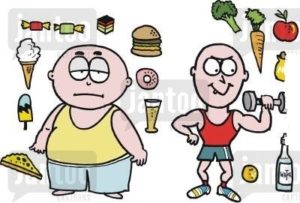Ilana Katz MS, RD, CSSD
What may feel good in the moment, may lead to chronic depression – something that we may all be dealing with in regards to our current pandemic. Stress, boredom, frustration are all emotional triggers that can lead to comfort foods. Comfort foods are more likely to be laden with fat, salt and sugar which can temporarily satisfy an emotional need, it can have longer-term effects on both physical and mental health. In short, binge-eating can create a cycle of eating and depression. Awareness, mindfulness and a good set of tools in preparedness are required to avoid this trap.
Practicing social distancing has forced many to be stuck isolated and stressed, whether it is over finances, boredom, disruption or a combination these type of feelings elicit a rise in the levels of cortisol, a stress-induced hormone. Cortisol sets off a rollercoaster of chemical reactions in the brain in relation to mood, appetite, motivation and sleep. Offsetting this imbalance in hormones, the natural instinct is to satisfy these chemicals which require highly emotionally satisfying foods (heavy carbohydrates, sweets and fats.) Simply, the pleasure centers of the brain are calling for the consistency of calmness, contentment and even euphoria but not without consequences.
Neurotransmitters, serotonin and dopamine are thus elicited to make us feel good and in the short-term this may be helpful. It is the longer term however, that can lead to chronic problems such as weight gain, blood sugar highs and lows, interrupted sleep patterns and mood swings. In short, the addictive cycle of highly satisfying foods is underway. Depression lies on the other end of the temporary satisfaction because the short-term coping behaviour makes the problem worse. Rather than dealing with the stressors the hormones and chemistry create stronger cravings and more resistance to feel-good neurotransmitters, Ultimately, resulting in needing more to achieve the same effect of satisfaction.
Understanding the mechanisms behind these cravings in response to these specific triggers can help an individual make better choice and break the cycle. Some mindful tips to avoid the binge eating/depression cycle.
- Be mindful of times of day the stressors are at their strongest – Once that is an awareness, planning alternate activity other than eating to engage the mind away from “cravings” Some ideas are to create a to-do list of chores around the house that need to get done, or plan something relaxing but engaging, like read, phone a friend, stretching. You would be surprised how occupying your mind for a time can reduce the stress as well as remove the boredom that leads to eating.
- Stock up on healthy and fresh options – the temptation for salt, sugar and fat laden foods is reduced if they are not available. So even if you do turn to food, you are more likely going to break the cycle of neurotransmitter addiction. This can also be titled a Trigger free environment
- Focus on nutrient density versus caloric density – Vitamins and minerals that support metabolic pathways will not only promote gastrointestinal health and optimal gut flora but will also aid in the digestion of nutrients required at a cellular level. Fruits and vegetables and higher fiber options all satisfy this requirement.
- Avoid “quick fix” dieting – Unbalanced and restrictive behaviour are likely to intensify the triggers mentioned above. Particularly with today’s push towards intermittent fasting, keto and what are pouted to be “detoxifying” (liquid) diet plans.
- Be mindful that coping strategies do not enhance more addictive strategies – Be aware of an individual tendency towards addiction. Physical activity in itself, although healthy at best, can also become addicting to an unhealthy level. Be aware of optimal hydration and fueling strategies if exercise assists as a replacement behaviour.
- Consider professional help if needed. Gaining control of behaviours that elicit addiction and/or eating disorders require control that a professional is equipped to assist with. Counselors, wellness practioners, psychologists, and dietitians are all equipped to deal with and refer out appropriately in this regard. It may be something you are able to nip in the bud once you have an awareness and the right tools, but always consider a more aggressive approach if coping mechanisms seem to be failing you. A team of the right support system can drastically improve the outcome.
In summary, our brains are wired towards feel good mechanisms which can often lead to a cycle of chemical imbalances pushing for sugary, salty and fatty foods. The more the indulgence is succumbed to, the more resistant the coping mechanisms become. Having a set of mindful tools and behaviours can break the cycle but if coping seems elusive, do not hesitate to reach out for professional help to improve longer term outcomes, especially now with the individual challenges of social distancing.


